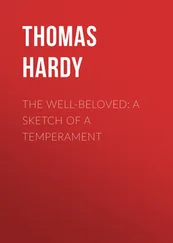Thomas Hardy - Wessex Tales
Здесь есть возможность читать онлайн «Thomas Hardy - Wessex Tales» — ознакомительный отрывок электронной книги совершенно бесплатно, а после прочтения отрывка купить полную версию. В некоторых случаях можно слушать аудио, скачать через торрент в формате fb2 и присутствует краткое содержание. Жанр: foreign_antique, foreign_prose, на английском языке. Описание произведения, (предисловие) а так же отзывы посетителей доступны на портале библиотеки ЛибКат.
- Название:Wessex Tales
- Автор:
- Жанр:
- Год:неизвестен
- ISBN:нет данных
- Рейтинг книги:5 / 5. Голосов: 1
-
Избранное:Добавить в избранное
- Отзывы:
-
Ваша оценка:
- 100
- 1
- 2
- 3
- 4
- 5
Wessex Tales: краткое содержание, описание и аннотация
Предлагаем к чтению аннотацию, описание, краткое содержание или предисловие (зависит от того, что написал сам автор книги «Wessex Tales»). Если вы не нашли необходимую информацию о книге — напишите в комментариях, мы постараемся отыскать её.
Wessex Tales — читать онлайн ознакомительный отрывок
Ниже представлен текст книги, разбитый по страницам. Система сохранения места последней прочитанной страницы, позволяет с удобством читать онлайн бесплатно книгу «Wessex Tales», без необходимости каждый раз заново искать на чём Вы остановились. Поставьте закладку, и сможете в любой момент перейти на страницу, на которой закончили чтение.
Интервал:
Закладка:
Thomas Hardy
Wessex Tales
PREFACE
An apology is perhaps needed for the neglect of contrast which is shown by presenting two consecutive stories of hangmen in such a small collection as the following. But in the neighbourhood of county-towns tales of executions used to form a large proportion of the local traditions; and though never personally acquainted with any chief operator at such scenes, the writer of these pages had as a boy the privilege of being on speaking terms with a man who applied for the office, and who sank into an incurable melancholy because he failed to get it, some slight mitigation of his grief being to dwell upon striking episodes in the lives of those happier ones who had held it with success and renown. His tale of disappointment used to cause some wonder why his ambition should have taken such an unfortunate form, but its nobleness was never questioned. In those days, too, there was still living an old woman who, for the cure of some eating disease, had been taken in her youth to have her ‘blood turned’ by a convict’s corpse, in the manner described in ‘The Withered Arm.’
Since writing this story some years ago I have been reminded by an aged friend who knew ‘Rhoda Brook’ that, in relating her dream, my forgetfulness has weakened the facts our of which the tale grew. In reality it was while lying down on a hot afternoon that the incubus oppressed her and she flung it off, with the results upon the body of the original as described. To my mind the occurrence of such a vision in the daytime is more impressive than if it had happened in a midnight dream. Readers are therefore asked to correct the misrelation, which affords an instance of how our imperfect memories insensibly formalize the fresh originality of living fact – from whose shape they slowly depart, as machine-made castings depart by degrees from the sharp hand-work of the mould.
Among the many devices for concealing smuggled goods in caves and pits of the earth, that of planting an apple-tree in a tray or box which was placed over the mouth of the pit is, I believe, unique, and it is detailed in one of the tales precisely as described by an old carrier of ‘tubs’ – a man who was afterwards in my father’s employ for over thirty years. I never gathered from his reminiscences what means were adopted for lifting the tree, which, with its roots, earth, and receptacle, must have been of considerable weight. There is no doubt, however, that the thing was done through many years. My informant often spoke, too, of the horribly suffocating sensation produced by the pair of spirit-tubs slung upon the chest and back, after stumbling with the burden of them for several miles inland over a rough country and in darkness. He said that though years of his youth and young manhood were spent in this irregular business, his profits from the same, taken all together, did not average the wages he might have earned in a steady employment, whilst the fatigues and risks were excessive.
I may add that the first story in the series turns upon a physical possibility that may attach to women of imaginative temperament, and that is well supported by the experiences of medical men and other observers of such manifestations.
T. H.
April 1896.
AN IMAGINATIVE WOMAN
When William Marchmill had finished his inquiries for lodgings at a well-known watering-place in Upper Wessex, he returned to the hotel to find his wife. She, with the children, had rambled along the shore, and Marchmill followed in the direction indicated by the military-looking hall-porter
‘By Jove, how far you’ve gone! I am quite out of breath,’ Marchmill said, rather impatiently, when he came up with his wife, who was reading as she walked, the three children being considerably further ahead with the nurse.
Mrs. Marchmill started out of the reverie into which the book had thrown her. ‘Yes,’ she said, ‘you’ve been such a long time. I was tired of staying in that dreary hotel. But I am sorry if you have wanted me, Will?’
‘Well, I have had trouble to suit myself. When you see the airy and comfortable rooms heard of, you find they are stuffy and uncomfortable. Will you come and see if what I’ve fixed on will do? There is not much room, I am afraid; hut I can light on nothing better. The town is rather full.’
The pair left the children and nurse to continue their ramble, and went back together.
In age well-balanced, in personal appearance fairly matched, and in domestic requirements conformable, in temper this couple differed, though even here they did not often clash, he being equable, if not lymphatic, and she decidedly nervous and sanguine. It was to their tastes and fancies, those smallest, greatest particulars, that no common denominator could be applied. Marchmill considered his wife’s likes and inclinations somewhat silly; she considered his sordid and material. The husband’s business was that of a gunmaker in a thriving city northwards, and his soul was in that business always; the lady was best characterized by that superannuated phrase of elegance ‘a votary of the muse.’ An impressionable, palpitating creature was Ella, shrinking humanely from detailed knowledge of her husband’s trade whenever she reflected that everything he manufactured had for its purpose the destruction of life. She could only recover her equanimity by assuring herself that some, at least, of his weapons were sooner or later used for the extermination of horrid vermin and animals almost as cruel to their inferiors in species as human beings were to theirs.
She had never antecedently regarded this occupation of his as any objection to having him for a husband. Indeed, the necessity of getting life-leased at all cost, a cardinal virtue which all good mothers teach, kept her from thinking of it at all till she had closed with William, had passed the honeymoon, and reached the reflecting stage. Then, like a person who has stumbled upon some object in the dark, she wondered what she had got; mentally walked round it, estimated it; whether it were rare or common; contained gold, silver, or lead; were a clog or a pedestal, everything to her or nothing.
She came to some vague conclusions, and since then had kept her heart alive by pitying her proprietor’s obtuseness and want of refinement, pitying herself, and letting off her delicate and ethereal emotions in imaginative occupations, day-dreams, and night-sighs, which perhaps would not much have disturbed William if he had known of them.
Her figure was small, elegant, and slight in build, tripping, or rather bounding, in movement. She was dark-eyed, and had that marvellously bright and liquid sparkle in each pupil which characterizes persons of Ella’s cast of soul, and is too often a cause of heartache to the possessor’s male friends, ultimately sometimes to herself. Her husband was a tall, long-featured man, with a brown beard; he had a pondering regard; and was, it must be added, usually kind and tolerant to her. He spoke in squarely shaped sentences, and was supremely satisfied with a condition of sublunary things which made weapons a necessity.
Husband and wife walked till they had reached the house they were in search of, which stood in a terrace facing the sea, and was fronted by a small garden of wind-proof and salt-proof evergreens, stone steps leading up to the porch. It had its number in the row, but, being rather larger than the rest, was in addition sedulously distinguished as Coburg House by its landlady, though everybody else called it ‘Thirteen, New Parade.’ The spot was bright and lively now; but in winter it became necessary to place sandbags against the door, and to stuff up the keyhole against the wind and rain, which had worn the paint so thin that the priming and knotting showed through.
Читать дальшеИнтервал:
Закладка:
Похожие книги на «Wessex Tales»
Представляем Вашему вниманию похожие книги на «Wessex Tales» списком для выбора. Мы отобрали схожую по названию и смыслу литературу в надежде предоставить читателям больше вариантов отыскать новые, интересные, ещё непрочитанные произведения.
Обсуждение, отзывы о книге «Wessex Tales» и просто собственные мнения читателей. Оставьте ваши комментарии, напишите, что Вы думаете о произведении, его смысле или главных героях. Укажите что конкретно понравилось, а что нет, и почему Вы так считаете.












